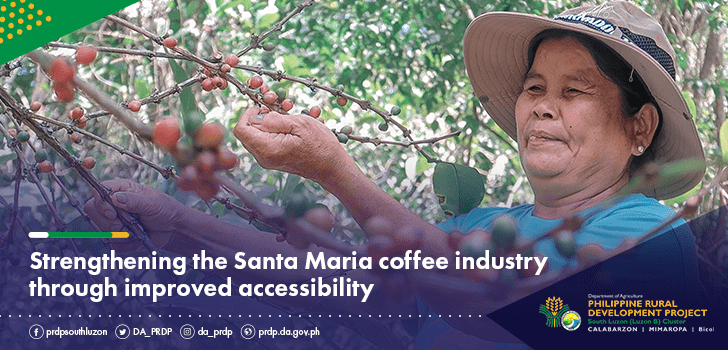
Strengthening the Santa Maria coffee industry through improved accessibility
For more than forty years, residents and farmers of Santa Maria, Laguna, endured poor-quality transportation that hindered them from various opportunities in their town. With only an earth road to walk on, not to mention an immensely challenging path, residents would take almost two hours to reach the busier parts of town. Instead of spending their time and energy on more productive and profitable endeavors, they were constantly trapped in transit, keeping them from giving their families a better life.
Agriculture is among the primary sources of income in Santa Maria, priding itself as the Rice Granary of Laguna and the province’s top coffee-producing municipality. Apart from its topography and natural resources, Santa Maria is an ideal place for agriculture as it is surrounded by several trading areas, such as the provinces of Rizal and Quezon, and localities, such as Sta. Cruz, Mabitac, and Famy, Laguna. However, despite all these potential, farmers and traders are often left disheartened, especially when products do not arrive at trading areas on time and in good shape, entailing a significant loss in income.
“Matagal na ang pagsasaka dito sa amin, pero iilan pa lamang sa mga magsasaka dito ang umaasenso. Isa sa dahilan ay ang kawalan ng magandang daanan punta sa pamilihan. Bukod sa napakatagal ng byahe, malaki din ang nagagastos sa pagpapahakot. Hindi rin naiibenta sa magandang presyo dahil pagdating sa palengke, sira-sira na ang ibang produkto, [Farming has been a long-standing tradition in our area, but only a few farmers here are prospering. One of the reasons is the lack of good access to the market. Besides the lengthy travel, there’s also a significant expense for transportation. Moreover, the products don’t sell at good prices because, by the time they reach the market, some of them are already damaged,]” shared Juan Kabilangan, a farmer from Brgy. Pao-o.
In response to uplift its local agriculture sector, particularly its growing coffee industry, the local government of Santa Maria and the Department of Agriculture – Philippine Rural Development Project constructed a farm-to-market road that connects six barangays: Kayhacat, Bubucal, Inayapan, Calangay, Coralan, and Bagumbayan. The 7.17 km road costing over Php 106 million (M) covers 97.38% of land dedicated to coffee and connects the covered and upland barangays to the municipal public market, Famy, Siniloan, Tanay, Cogeo, and the Marilag Trading Post in Brgy. Pao-o.
Upon the road’s completion in 2022, locals, especially farmers, immediately felt great benefits. Travel time was reduced to 46 minutes now that vehicles, residents, and draft animals can easily pass through. Rain or shine,residents and farmers can conveniently access services, and opportunities anytime of the day .Ultimately, farmers can quickly convert their products into income now that they are better connected to the market and are more reachable to traders.
“Karaniwan ngayon mga buyer na ang napunta dito sa aming farm kasi maganda na ang kalsada. Nakakapili na kami ng buyer ng aming mga produkto na mataas-taas ang presyo, di tulad noon na kami pa ang magdadala sa palengke at napipilitan kaming magbenta sa murang presyo para lamang kumita, [Instead of us going to trading areas, traders now go directly to us to pick up and buy our produce because of the improved road condition. Because of this, we can now choose traders who offer good prices, not like before where we were forced to sell our products even at a low price just to get some money,]” shared Elenita Balela, a seasoned farmer from Brgy. Tungkod.
The faster and smoother commute and the increased use of vehicles significantly reduced hauling costs for coffee from Php 12,540.00 to Php 4,840.00. Since products can now be brought at their peak quality to traders, their marketability and profitability increased. From Php 13.00 per kilogram, farmers are now selling green coffee beans at Php 21.00.
“Ang serbis namin noon ay kabayo tapos lilipat pa kami nang ilang beses bago madala ang produkto sa bayan. Maraming nasisira at nare-reject lalo na ang mga gulay. Ngayon, isang sakay na lang, wala na masyadong sira ang produkto at naiibenta na sa magandang presyo sa mamimili, [Back then, we were riding horses then we have to transfer from one vehicle to another before we get the products to the trading areas. A lot of the products get damaged and rejected especially vegetables. Now, we get to the trading areas in just one ride. Our products do not get damaged and we can sell them at a higher price to the customers,]” shared Gloria Olino, a farmer and coffee trader from Brgy. Pao-o.
The improved quality of transportation and connectivity of the covered barangays to other areas further encouraged the growth of the coffee industry in Santa Maria, increasing local agricultural productivity by 21%. After the FMR’s completion, the local coffee production volume rose 92%.
“Simula nang magka kalsada, lumawak ang coffee production area dito sa Santa Maria ng 7%. Nagkaroon din ng lakas ng loob ang mga farmers na magtanim ng ibang crops tulad ng rambutan at lansones. Nabuhay din ang mga na-idle na fish ponds, [Since the road was constructed, coffee production in Santa Maria increased by 7%. Farmers were also encouraged to plant other crops like rambutan and lansones. Idled fish ponds are also now back in operation,]” shared Carlo Sumaria, Santa Maria Municipal Agriculturist.
Now that they can easily access support and technical assistance from various agencies, farmers were encouraged to venture into other activities beyond coffee production, such as trading, processing, and supplying agricultural inputs. Among them are the Cueva Farmers Association, now engaged in coffee propagation, and the Juan Santiago Agriculture Cooperative which recently partnered with the DA-PRDP in expanding their coffee processing enterprise.
“Malaki ang maitutulong ng FMR sa amin sa pagkuha ng karagdagang raw materials para sa aming itatayong processing center dahil mas marami na kaming maaabot na magkakape dito sa Santa Maria. Matutulungan din namin sila na makatipid sa hauling at mas makakasigurado silang may pagbebentahan sila ng kanilang produkto, [The FMR will be a great help to our cooperative in picking up additional raw materials for our processing center now that we have gained access to more coffee farmers in Santa Maria. Through this, we can help reduce the hauling expenses of farmers and guarantee a market for their produce,]” shared Manolo Diaz, president of the JSACOOP.
This development resulted in a significant increase in income for farmers from Php 3,023.26 to Php 14,502.00. Further, the shorter travel time gave residents and farmers the time and opportunity to venture into other livelihood endeavors such as sari-sari stores, restaurants, recreational areas, car washes, jobs, etc., making their communities busier and more productive.
“Napapaaral namin ang aming mga anak at nabibigyan namin sila ng sapat na baon. Nakabili na rin kami ng serbis para hakutin ang mga produkto para hindi na kami mamasahe, [We are now able to provide more for our children and continue sending them to school. We were also able to buy our own vehicle to haul our products so that we won’t have to commute,” shared Gloria Olino a farmer and coffee trader from barangay Pao-oz.
Beyond farming, the FMR gave way for Santa Maria to boost its agri-tourism endeavors. Organic farms, small hotels, and other establishments have emerged since the construction of the FMR. Coco Vanilla Farm, an organic farm in Brgy. Bubucal offers a bicycle tour along the FMR for guests to showcase the vast and soothing landscapes of Santa Maria. They also serve and sell processed Sta. Maria coffee to their guests.
With the FMR finished for only a year and with the ongoing expansion of the JSACOOP enterprise subproject with the DA-PRDP, the Santa Maria LGU expects further growth in the local coffee industry and more benefits to emerge from the Kayhacat-Bubucal-Inayapan-Calangay-Coralan-Bagumbayan FMR. According to Santa Maria Mayor Cindy Carolino, they are currently allocating local funds and partnering with the barangay LGUs to maintain the integrity and functionality of the road to ensure that more and more people will benefit from the subproject.
“We are very thankful to the DA-PRDP for helping us bring significant and positive change to our agricultural sector and local coffee farmers. Now that farmers have improved connectivity to the market and other value-adding opportunities, we are optimistice that our efforts to propagate and promote Santa Maria coffee will lead us to a strengthened, sustainable, and more developed local coffee industry,” shared Mayor Carolino. #

Before the construction of the road, farmers mostly relied on horses to haul their harvests to the market. Although transportation was fast, harvests were prone to damages. Now, with the FMR, some farmers use vehicles which are faster and more reliable. (Photo by Von Samuel Panghulan)

The 7.17 km farm-to-market road traverses six barangays, covering 97.38% of land dedicated to coffee and benefiting 10,898 beneficiaries. (Graphic by Von Samuel Panghulan)

The farm-to-market road mainly caters to the coffee commodity, but it can also largely benefit the rice, coconut, citrus, rambutan, banana, and lanzones commodities. (Photo by Elijah Ocial)

Coffee production in Santa Maria is seen to be increasing. Local volumeincreasedby92%andproductionareasexpandedby7% per Santa Maria Municipal Agriculturist Carlo Sumaria. (Photo by Myrelle Joy Bejasa)
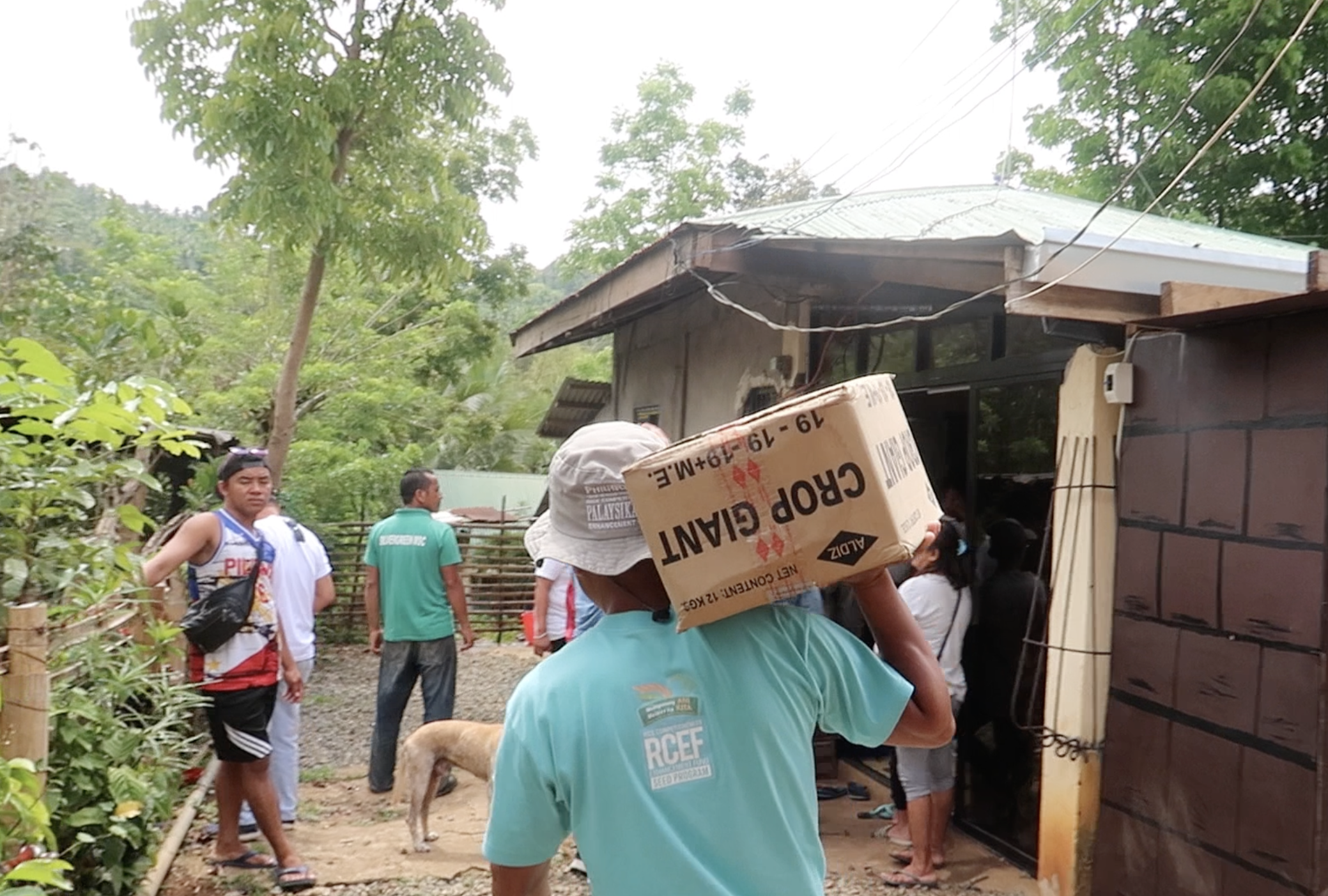
Farmers from upland barangays can now easily and quickly accessagriculturalinputsandtechnicalassistancewiththehelp of the Kayhakat-Bagumbayan FMR as this connects them to the town proper. (Photo by Myrelle Joy Bejasa)
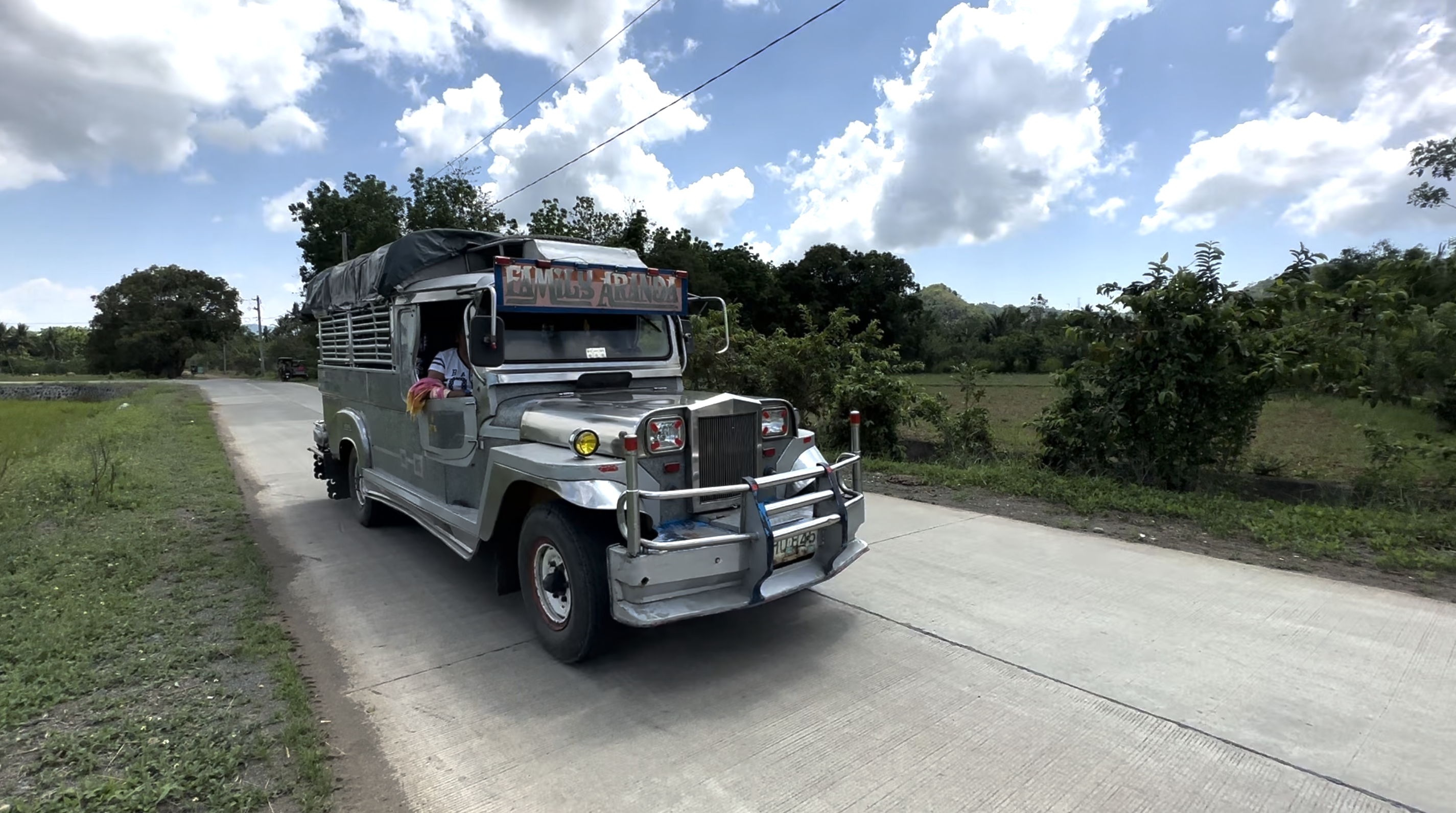
The improved quality of transportation which allowed for the convenient hauling of goods and faster access to basic needs, services, and economic opportunities has paved the way for the residents to uplift their state of living. (Photo by Myrelle Joy Bejasa)

Because of the multitude of benefits the locality is enjoying from the Kayhakat-Bagumbayan FMR, the local government unit of Santa Maria, Laguna proposed another FMR subproject to the DA-PRDP Scale-Up to be able to help more coffee farmers in other barangays. (Photo by Myrelle Joy Bejasa)
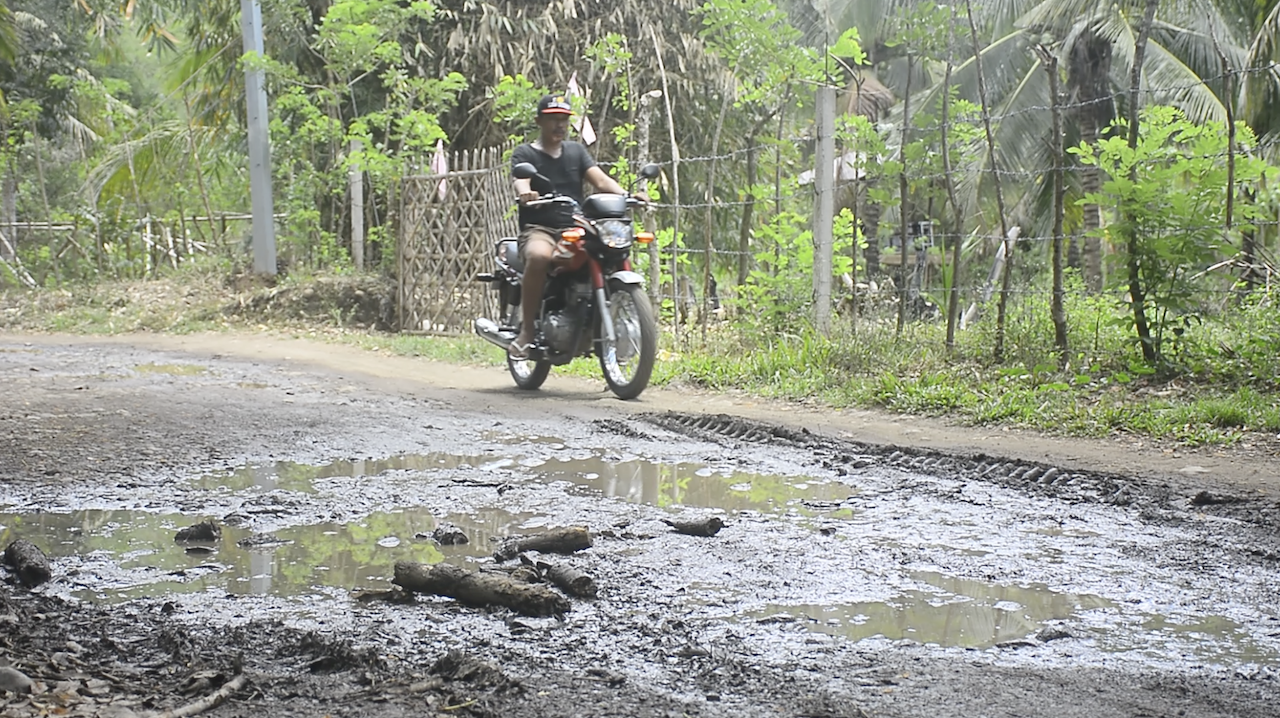
Although vehicles were able to pass through the former earth road, transportation took too long before the construction of the FMR due to mud and rocks which sometimes caused damages to the residents’ vehicles. (Photo by Von Samuel Panghulan)
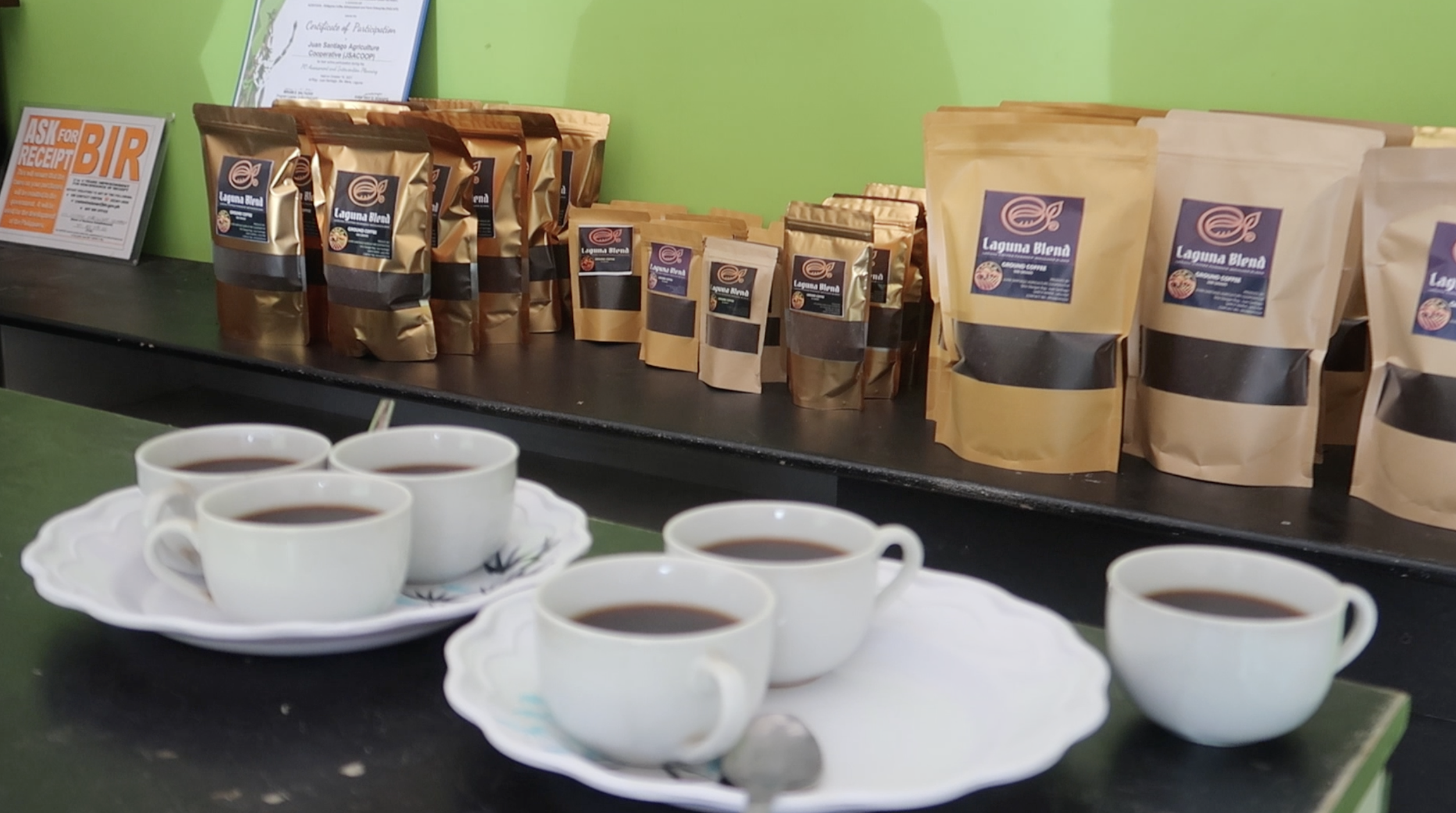
Members of the Juan Santiago Agricultural Cooperative, who have an ongoing enterprise subproject with the DA-PRDP were even more encouraged to locally process coffee as the Kayhakat- Bagumbayan FMR will help them access more local producers who can supply them raw materials and customers who will avail of their products. (Photo by Myrelle Joy Bejasa)

